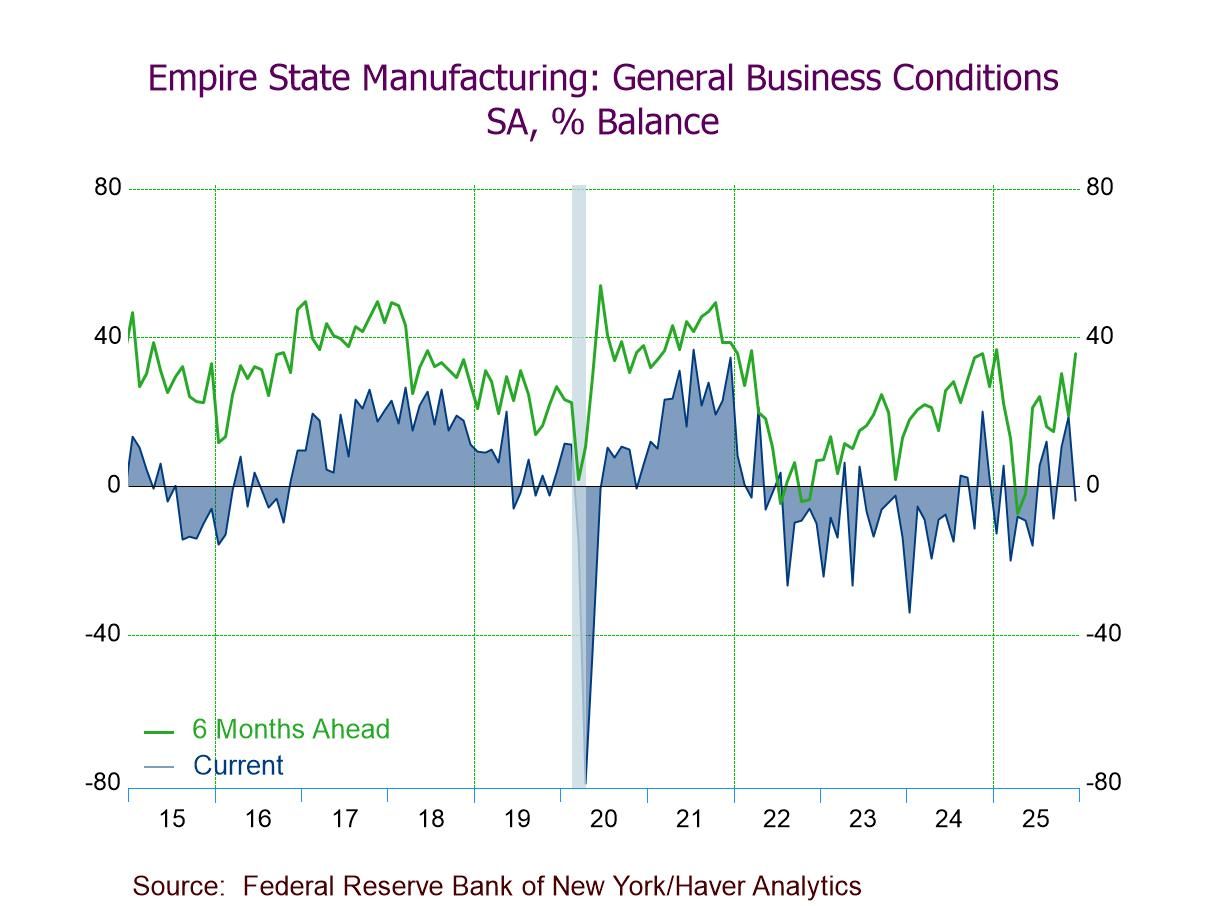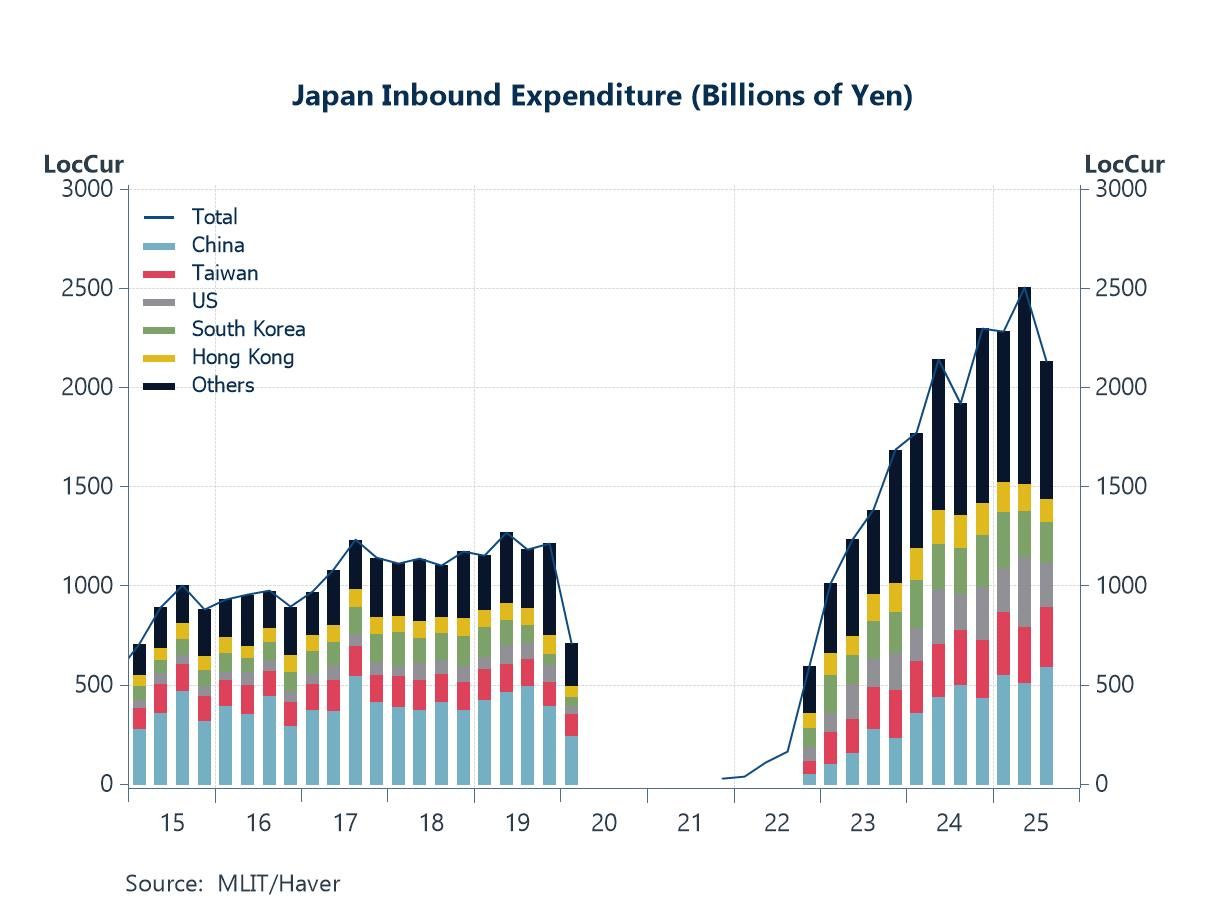 Global| Mar 12 2009
Global| Mar 12 2009U.S. Flow of Funds: Deleveraging Occurs As Asset Values Decline
by:Tom Moeller
|in:Economy in Brief
Summary
For the year as a whole, total credit market borrowing grew just 5.5% which was the weakest advance since 1993. And all sectors pulled back their borrowing -- except the Federal government whose liabilities grew at a 24.2% rate, [...]
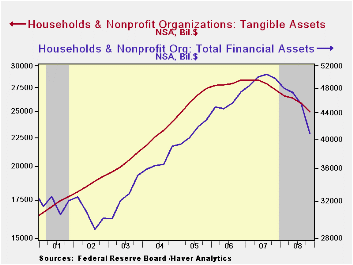
For
the year as a whole, total credit market borrowing grew just 5.5% which
was the weakest advance since 1993. And all sectors pulled back their
borrowing -- except the Federal government whose liabilities grew at a
24.2% rate, nearly a record. Nongovernment domestic liabilities
retreated as the recession forced deleveraging. (Or was it the other
way around?) These liabilities fell slightly, for the first time ever,
during 4Q. 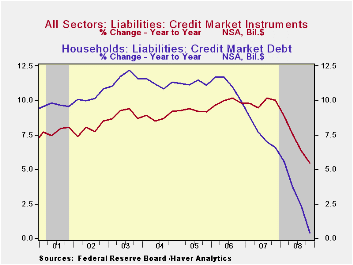 They grew just 2.3% for the year as a whole,
nearly a record low.
They grew just 2.3% for the year as a whole,
nearly a record low.
Borrowing by the household sector evaporated as it posted a nearly unprecedented 0.5% q/q drop. Mortgage borrowing dropped a breathtaking $69.7B (-0.4% y/y) which was nearly double the 3Q drop. Both are records. Consumers' credit liabilities rose a meek $3.9B (1.7% y/y) with growth in spending turning sour. The value of bank loans fell 15.2B (+15.4% y/y) as the credit crunch unfolded.
Credit market debt owed by the financial sector remained strong with a $304.7B increase, though the year-to-year growth rate of 6.4% was roughly half that in 2007. Liabilities at commercial banks rose a much reduced 12.7% y/y while savings institutions liabilities fell by 2.8%. · The liabilities of the foreign sector shrank about as they did during 3Q by $106.7B.
The other side of the balance sheet, of
course, was equally as bleak. The value of the household sector's
financial assets fell by nearly $9 trillion. The value of equity market
shares fell by $3.7 trillion or by 39.9% y/y over the course of the
year and mutual fund share values also fell by one-third or by $900
billion. Pension fund reserves were whacked by $3 trillion during the
year or by 22.4%. Tangible asset values suffered somewhat less than
financial values, but the direction of change was the same. 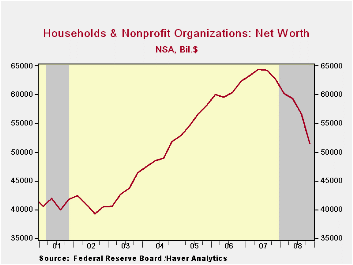 The value
of tangibles overall dropped $2.4 trillion following the $1.1 drop
during 2007. Those declines were nearly all due to the reduction in
real estate values.
The value
of tangibles overall dropped $2.4 trillion following the $1.1 drop
during 2007. Those declines were nearly all due to the reduction in
real estate values.
Lower asset values lowered the net worth of the U.S. household sector last quarter and over the course of the year deteriorated by more by than ten trillion dollars. Household net worth was at it's lowest level since 2003.
Mortgage lending reform is yesterday's House subcommittee testimony by Sandra F. Braunstein, Director, Division of Consumer and Community Affairs, Federal Reserve Board and it can be found here.
| Flow of Funds (Y/Y % Chg.) | % of Total | 4Q '08 | 3Q'08 | 2008 | 2007 | 2006 |
|---|---|---|---|---|---|---|
| Total Credit Market Debt Outstanding | -- | 5.5 | 6.3 | 5.5 | 10.0 | 9.8 |
| Federal Government | 11% | 24.2 | 15.3 | 24.2 | 4.9 | 3.9 |
| Households | 28% | 0.4 | 2.4 | 0.4 | 6.6 | 10.0 |
| Nonfinancial Corporate Business | 13% | 4.7 | 7.3 | 4.7 | 13.5 | 8.5 |
| Nonfarm, NonCorporate Business | 7% | 4.8 | 9.1 | 4.8 | 12.9 | 14.7 |
| Financial Sectors | 32% | 6.4 | 7.2 | 6.4 | 13.3 | 10.0 |
| Net Worth: Households & Nonprofit Organizations (Trillions) | -- | $51.477 | $56.586 | $51.477 | $62.699 | $62.300 |
| Tangible Assets: Households | -- | $24.905 | $25.786 | $24.905 | $27.265 | $28.360 |
| Financial Assets: Households | -- | $40.814 | $45.351 | $40.814 | $49.754 | $47.371 |
Tom Moeller
AuthorMore in Author Profile »Prior to joining Haver Analytics in 2000, Mr. Moeller worked as the Economist at Chancellor Capital Management from 1985 to 1999. There, he developed comprehensive economic forecasts and interpreted economic data for equity and fixed income portfolio managers. Also at Chancellor, Mr. Moeller worked as an equity analyst and was responsible for researching and rating companies in the economically sensitive automobile and housing industries for investment in Chancellor’s equity portfolio. Prior to joining Chancellor, Mr. Moeller was an Economist at Citibank from 1979 to 1984. He also analyzed pricing behavior in the metals industry for the Council on Wage and Price Stability in Washington, D.C. In 1999, Mr. Moeller received the award for most accurate forecast from the Forecasters' Club of New York. From 1990 to 1992 he was President of the New York Association for Business Economists. Mr. Moeller earned an M.B.A. in Finance from Fordham University, where he graduated in 1987. He holds a Bachelor of Arts in Economics from George Washington University.



